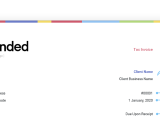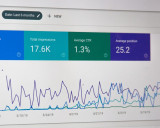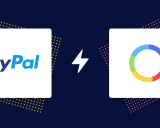
16 work-from-home jobs (and how to get started)
Working from home comes with a lot of flexibility and other perks—but it’s not for everyone. Before you dive into the potential jobs you can pursue, let’s examine the pros and cons of working from home.
Article contents
− +What are the pros of working from home?
Schedule flexibility
The most obvious benefit of working from home is the flexibility that comes with making your own schedule and setting your own workload. Because you won’t have an employer to answer to (unless you’re working remotely for a company), you can choose the hours in the day you want to work. No more dragging yourself to an office when you really want an extra hour of rest. This also means you can take care of “life admin” stuff, like doctor’s appointments or trips to the bank, when everyone else is at their day job. On top of that, you can expect more free time, since you won’t have a commute.
More time for family and friends
Beyond having more time for yourself, you’ll also be better positioned to dedicate time to family and friends when you’re working from home. Many parents enjoy self-employment for precisely this reason—they can earn an income while raising their family, and cut costs on expensive daily childcare. You’ll also find that running your own schedule means it’s easier to make time for your friends when they need you, since you won’t have to schedule your social hours around rigid work obligations.
More control over your work and clients
When you work for an employer, your tasks, clients, and standards of work are dictated by your managers. As a self-employed person, you’ll have far greater control over how you work. You can hand-pick your clients and refuse to work with any that give you a bad feeling. You also will operate using your own tone of voice and style, rather than conforming to the corporate tone set by your employer.
Location freedom
“Working from home” doesn’t mean you always have to be in your home. Many of the jobs on this list can be done from anywhere, as long as you have a computer and a WiFi connection. If you’re fond of traveling, you can try out the “digital nomad” lifestyle and take your business on the road. You can also enjoy working in new spaces, like coffee shops, local libraries, or even the pub.
Improved health and wellness
When you work in an office, it can be a challenge to stay healthy. Working at home (and on your own), means no more tempting birthday cakes or after-work drinks. You can schedule in time for fitness more easily—whether that means taking a late-morning yoga class a few times a week or simply going out for an afternoon stroll. Your kitchen is only a few steps away, which means it’s easier to cook healthy meals. Bonus perk: Cooking your own food every day is a great way to save money.
What are the cons of working from home?
Pay-cheque insecurity
If you’ve worked in offices for most of your life, you’re probably used to seeing a pay-cheque appear in your account every few weeks. As a freelancer, you’re likely to experience less consistency in terms of payment. Even if you end up making more money working from home, you’ll see be reliant on clients to pay their invoices on time—and you’ll learn quickly that some clients are less than timely. For Rounded users, you can alleviate this pain point by sending automated reminders for overdue invoices.
Running your own business operations
At a full-time office job, you have the benefit of an HR department to help you with things like payroll, expenses, budgeting, on-boarding, and workplace disputes. As a freelancer, you will have to do these admin tasks on your own. As you transition into self-employment, you must prepare for the extra time and effort needed to make sure your business is running smoothly.
Dealing with isolation and distraction
When you work from home, you’ll be spending a lot of time on your own. This can be challenging for some, especially those who enjoy lots of social interaction. You can mitigate this issue by working from cafes, co-working offices, and other places in your community, but it won’t be the same as having colleagues you see every day. On the flip side, you may find that working from home presents new distractions. With your couch and TV just a few steps away, and the ability to pack up and stop working whenever you like, you’ll need to practice self-discipline to make sure you don’t fall behind in your work.
Dealing with taxes and other regulatory standards
If you plan on working independently, you need to comply with all regulations for freelance workers in your area. For Australia work from home jobs, you need to register as a sole trader and get a firm understanding of GST and tax for sole traders.
Rounded’s accounting software makes life easier for home workers. As a Rounded user, you can easily monitor your income and expenses every month, quickly generate invoices, and easily pull the numbers needed for filling out your quarterly Business Activity Statements (BAS).
16 Work-From-Home Jobs to Consider
Do the pros of working at home outweigh the cons? If so, the next step is to figure out exactly what you want to do to make money as a freelancer. We’ve listed 16 different careers you can consider, with some guidance on the first steps you should take to make your dream a reality.
1. Graphic Designer
If you have an eye for aesthetic and know how to use platforms like Photoshop, GIMP, and Illustrator, a career as a freelance graphic designer might be right for you. Thanks to the rise of the digital marketplace, graphic designers are in high demand. As long as you have the software on your own computer, you can work from virtually anywhere you like (including the couch).
How to get started
If you’re just starting out, you’ll need to take tutorials on how to use the most essential software for graphic designers. Adobe offers a number of tutorials that come with your subscription to the software, or you can look on sites like Udemy for affordable courses. Once you’ve got the skills, begin building a portfolio of your work by designing your own website graphics. Be sure to feature your work on sites like Instagram and Pinterest, which will make it much easier for people to find you.
2. Writer/Editor
Talented writers never go out of style—businesses need help creating all sorts of written content, from Facebook posts to eBooks to blogs. For this work-from-home job, you simply need a reliable computer with Microsoft Word (and a passion for writing, of course).
How to get started
Because the world of freelance writing and editing is so vast, start out by deciding exactly what type of writing you want to focus on. Will you help companies build engaging blog posts, or would you rather be a ghostwriter who helps people tell their stories? If you plan on writing for businesses, you may want to choose a niche, such as SaaS copywriting or email marketing, to increase your value. The next step is a no-brainer—start writing to build a portfolio of work to show potential clients. You can begin with a blog on your own site, or search for websites or magazines that feature guest writers. When it comes time to start looking for clients, check out job boards like ProBlogger or the Facebook group Cult of Copy.
3. Photographer/Videographer
With a camera and a director’s eye, you can use your love of photography or videography to make money from home. If you have the right skill set, you can find work as a photographer or videographer for weddings and events, local businesses, or within digital marketing and social media.
How to get started
As a freelance photographer or videographer, you’ll need your own equipment to bring to shoots. This will require an up-front investment for a camera, tripod, and video/photo editing software. Once you have these, practice is the name of the game. Spend time learning how to use your equipment, and upload your best shots to a digital portfolio and social media to showcase to clients. Consider taking some courses like these from envatotuts+, and when you’re ready, you can start finding potential clients in your area on job boards like Upwork.
4. Digital Marketing Specialist
Nearly every major business uses some form of digital marketing. If you have skills within this space, you can market yourself as a specialist or consultant and pull in contracts from companies that need help carrying out their strategy. There are also many digital marketing agencies that hire freelancers or employ remote workers to help manage their client loads.
How to get started
Start out by focusing on one or two areas where you want to be a specialist. Do you want to work in SEO, content marketing, social media marketing, paid advertising, or something else entirely? Once you know where you want to focus, it’s important to make sure you are up to snuff. There are many free online courses you can take, such as Google Analytics Training or Facebook Blueprint, to help you up-skill and obtain certifications to prove your worth to potential clients. As you begin working, gather case studies and testimonials. From there, you can build your own website or digital portfolio, or reach out to agencies who may be looking for your skillset.
5. Virtual Assistant
You’ve probably heard of virtual assistants before, but what exactly do they do? The answer varies greatly, as virtual assistants can help with everything from scheduling meetings, providing customer service, searching for leads, or even assisting with “life admin” for busy folks. If you consider yourself an all-rounder with strong organisational skills, this career path might be right up your alley.
How to get started
To be a successful virtual assistant, you need a concrete list of services you offer. You’ll have an easier time getting clients if your services and rates are listed on your own website. If you aren’t sure where to start, take a look at the VA Institute or other training programs. From there, you will need to start hunting for leads—you may find these on social media groups (start with Facebook or LinkedIn), or by reaching out to business owners in your network. You can also list yourself in places like Virtually Yours, which matches VAs with potential clients.
6. Childcare professional
If you love kids and have experience with children, then consider offering childcare services from your own home. What kind of services you can offer, and what certifications you need, will vary depending on your location. Before you decide to pursue this career, make sure you research the necessary requirements.
How to get started
Take a look at the TAFE courses offered in your area to get a better idea of what you need to do to get started. You can also read this extensive article from Training.com.au for more guidance. Once you have all of the certifications in place, you can start reaching out to parents who may need your assistance. It’s vital to have testimonials and referrals from happy clients, so begin collecting these from anyone who has used you as a childcare provider. You can also create a website that outlines your services and demonstrates your commitment to providing safe, healthy care for children.
7. Dog walker/groomer
Many people consider their pets to be members of their family, which means they’re willing to pay for quality care for their furry friend. Dog walking is an excellent source of income for people who enjoy spending time with animals and like an active job. You can offer a range of services, from simple dog walking to boarding pets or grooming (if you have the necessary qualifications).
How to get started
If you’re starting from scratch, consider signing up to one of the online dog care websites, like Rover or Madpaws. You can use your experience there to build up a bank of testimonials and references, which you can then list on your own website if you’d prefer to run a dog-walking business on your own.
8. Data entry specialist
Do you find spreadsheets soothing? Do you feel happiest when things are neat and organised? You may be a good fit for a job as a work-from-home data entry specialist. With this job, you’ll work with businesses that need help collating data into a cohesive system, and for added value, you can build up your skills as a data analyst to increase your income.
How to get started
Data entry jobs are easy to come by, as so many businesses need to compile large amounts of information. If you’re new to the field, you can look on sites like Upwork or Freelancer.com. However, many of the jobs listed there will have low pay, so use these to build up a portfolio of experience so you can expand your network, build your reputation, and start finding clients directly.
9. Sell your own products
Thanks to websites like Etsy and eBay, many people are able to make a career out of their hobbies and crafts. If you’ve got a creative flair, you can turn your side-projects as a jewelry maker, painter, needlepointer, or whatever into a viable income stream.
How to get started
Once you know what sort of products you want to sell, it’s easy to set up your own online shop. Etsy allows you to make a free seller’s account, and from there, it’s a matter of photographing your wares and writing up compelling product descriptions. After a while, you’ll learn which products are the easiest to sell and can focus on creating items that will fly off your virtual shelves.
10. Run your own drop shipping operation
Drop shipping is a relatively new concept when it comes to work-from-home jobs. As a drop shipper, you’ll be selling products online through sites like Amazon or eBay. Instead of making your own products, however, you’ll be selling items you purchase from other online retailers, like Ali Baba. You’ll use third-party services to ship these products to your customers, and because you’re selling them for more than you’re purchasing them, you’ll keep all of the profits from margins.
How to get started
Drop shipping has a learning curve, so if you’ve never done it before, take the time to read through a few guides to drop shipping, or consider taking a drop shipping course. From there, you’ll select the types of products you want to sell and start looking for vendors and shipping companies to build your empire.
11. Online tutor
Do you love teaching, but would rather not drag yourself into a school five days a week? Online tutors are in high demand, and you could make a career out of helping students learn new skills and improve their grades. As an online tutor, you’ll get to make your own schedule and set your own workload, all from the comfort of your own home.
How to get started
The first step is determining what you are qualified to teach. You can start out looking for online tutoring portals like Classgap and TutorMe, which will start connecting you with students once you’ve proven your abilities.
12. Online translator
If you are fluent in more than one language, you already have the foundation for a career as an online translator. Businesses need bilingual people to translate documents and website content for a global audience.
How to get started
Speaking a second language is only the first step in becoming a translator. You also need to determine what type of content you are capable of translating. You don’t want to start offering services as a contract translator, for example, if you have no legal experience. Once you’ve identified the type of content that’s right for you, start connecting with businesses and agencies who need that kind of work on a regular basis. You can begin looking on LinkedIn or other online job boards, or sign up on translator platforms like ProZ.
13. Transcriptionist
A transcriptionist is someone who creates written copies of audio or video recordings. If you choose this career path, you’ll spend time listening to interviews, webinars, and speeches, then diligently typing them up for your clients. The main requirements here are attention to detail, along with a reliable computer, a good pair of headphones, and perhaps a foot pedal to make your job easier.
How to get started
If you’re a beginner or have no experience as a transcriptionist, you can still get work to start building your portfolio. Take a look at platforms like Babbeltype and DailyTranscription. It will be difficult to make a full-time income on these platforms, but they can give you the skills and experience you need to start finding your own clients or going after bigger-ticket jobs.
14. Virtual travel agent
For most people, booking travel is a pain. Finding the right flights, making sure the dates line up, and ensuring accommodation is ready and waiting upon arrival can be a huge headache. If you have experience booking excellent trips, you can take advantage of other people’s travel woes by offering services as a virtual travel agent.
How to get started
First, decide if you’d prefer to work remotely for a travel agency or build your own business. If you choose the former, you can begin browsing job postings from companies like Go Tours, or download the guide of host agencies from HostAgencyReviews.com. If you opt to start your own business, familiarise yourself with travel comparison tools like Kayak, build a website outlining your services, and start hunting for clients through networking events and social media.
15. Virtual bookkeeper
Do you live and breathe numbers? Enjoy finding ways to cut expenses and increase revenue? A job as a virtual bookkeeper could be your next career. This role is best suited for people who already have experience working in finance as a bookkeeper or accountant (especially if they have the certifications to prove it). Instead of working for a single company in an office, you’ll offer your services virtually, completing tasks like payroll management, budgeting, and financial planning for small and medium-sized businesses.
How to get started
You need to prove your worth to potential clients before you can begin working as a virtual accountant. First, you must have the proper certifications—if you don’t have these, considering enrolling in a TAFE course, or getting assistance from the International Association of Bookkeepers. Next you’ll want to build your own website and fill it with testimonials from previous clients and insights into the services you offer (and your pricing structure). This blog from Fundera gives good insights into the kinds of questions potential clients will have. After that, you can begin hunting for businesses in need by looking on job search boards and pitching your services directly.
16. Programmer/Web Designer
Virtually every business needs to have a web presence these days, which means the demand for talented programmers, app designers, and website gurus is at an all-time high. This job is ideal for making money from home, as you’ll only need your own machine with the right software to start getting work.
How to get startedYou won’t be able to work as a programmer if you aren’t proficient in the most common coding languages, like Javascript, CSS, HTML, Python, or PHP. Fortunately, there are many free training platforms, like CodeAcademy, where you can pick up these skills as a beginner. From there, you need to build up experience by designing your own websites or apps. Try uploading these personal projects to sites like ProductHunt or BetaBound to get feedback from users. You can then use these projects to create a portfolio for future clients.
Final thoughts
Working from home can be an exciting prospect, but it takes a lot of hard work to get there. If one of the careers on this list piques your interest, start building a strategy, outlining the steps you need to take to get your business off the ground.
When you’re up and running, Rounded will be here to support you. We’ll help you track your finances, invoice your clients, and prepare for tax season, so you can focus on running your brand new work-from-home business.
Join newsletter
ABOUT ROUNDED
Invoicing and accounting software for sole traders. Get paid faster and relax at tax time.
























